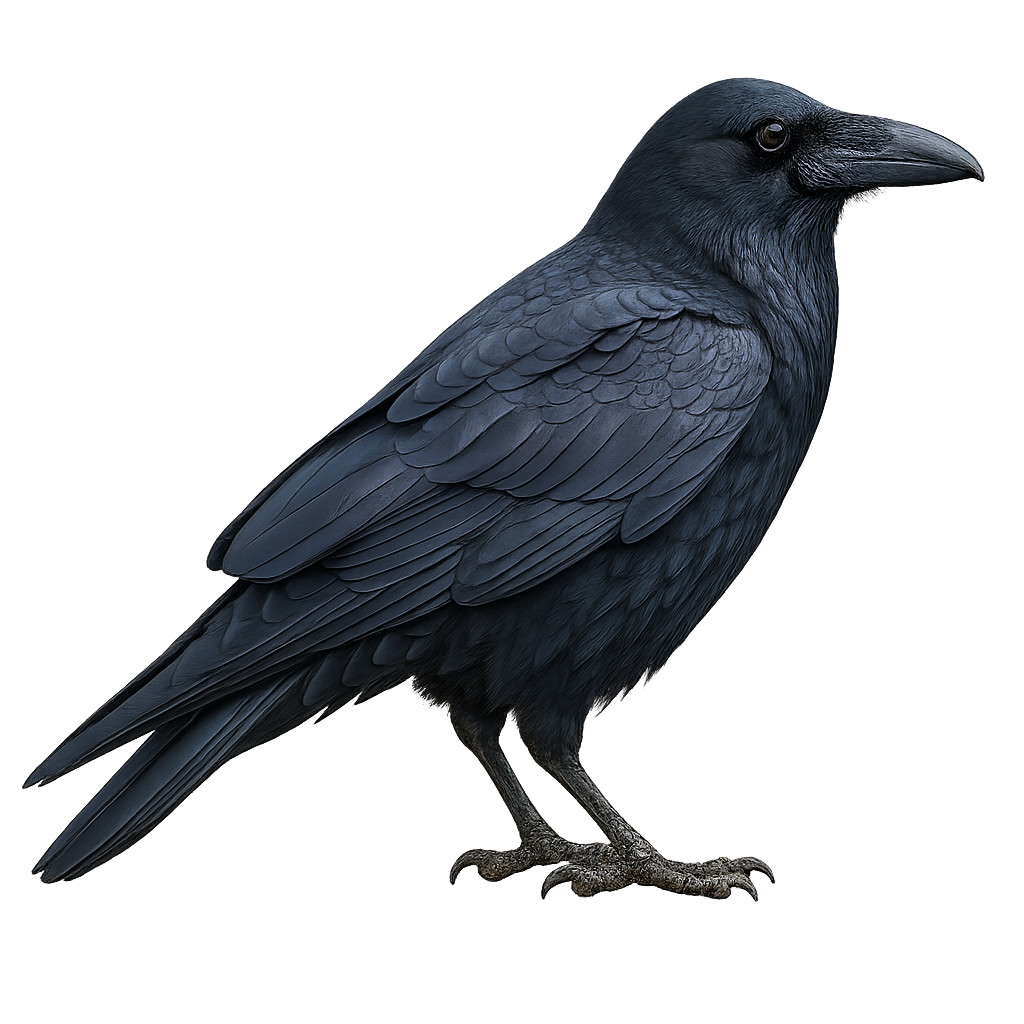Your wildlife photography guide.
Explore the common raven in detail, study its behavior, prepare your shots.
Where to observe and photograph the common raven in the wild
Learn where and when to spot the common raven in the wild, how to identify the species based on distinctive features, and what natural environments it inhabits. The WildlifePhotographer app offers tailored photography tips that reflect the common raven’s behavior, helping you capture better wildlife images. Explore the full species profile for key information including description, habitat, active periods, and approach techniques.
Common raven
Scientific name: Corvus corax

IUCN Status: Least Concern
Family: CORVIDAE
Group: Birds
Sensitivity to human approach: Suspicious
Minimum approach distance: 15 m
Courtship display: February to April
Incubation: 20-21 jours
Hatchings: March to May
Habitat:
Mountains, forests, open areas
Activity period :
Primarily active during the day, with peak activity in the morning and late afternoon.
Identification and description:
The common raven is an impressive bird found in mountains, forests, and open areas across Europe, Asia, and North America. It is easily recognized by its large size, glossy black plumage, and hoarse call. This corvid is known for its exceptional intelligence and complex social behavior. It primarily feeds on carcasses, insects, and sometimes fruits and seeds.
Recommended lens:
500 mm – adjust based on distance, desired framing (portrait or habitat), and approach conditions.
Photography tips:
Photograph the common raven using a telephoto lens to capture its imposing silhouette and behaviors, particularly when it flies at high altitudes or perches on rocks. It is best to photograph early in the morning or late in the afternoon when the light is soft and the bird is more active. Be ready to capture moments when it interacts with its environment or vocalizes from a perch.
From knowledge to field practice
A species profile helps you understand an animal. In the field, the challenge is often different. Remembering your own observations.
The WildlifePhotographer app allows you to:
• record your personal observations
• note locations, dates, and behaviors
• revisit your field references over time
• build a private and long-term field logbook
The app does not provide observation locations.
It helps you organize what you actually observe, with respect for wildlife.

